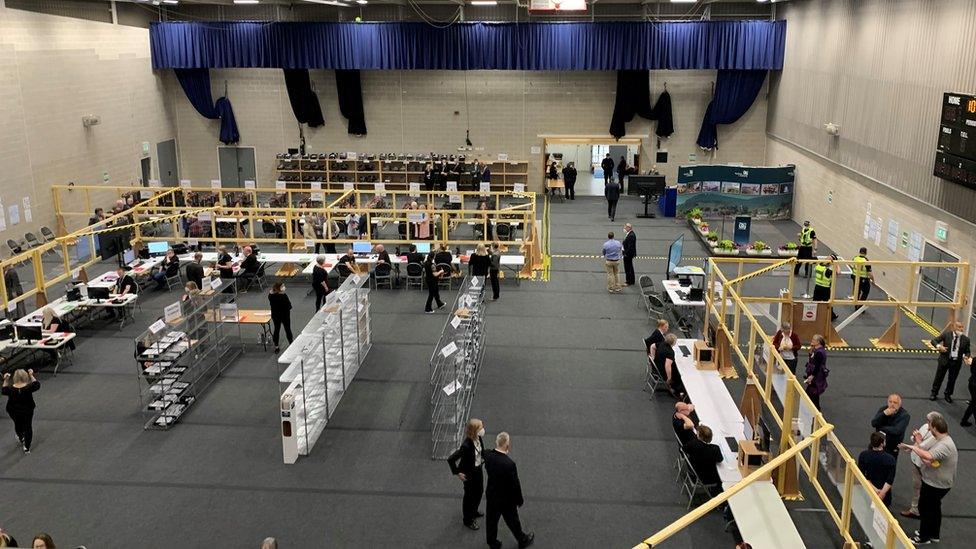Scottish election results 2022: First Green for Scottish Borders Council
- Published

Neil Mackinnon was elected in the Galashiels and District ward
The Scottish Greens have won their first ever council seat in the Borders.
Neil Mackinnon was elected in the Galashiels and District ward of the south east Scotland local authority.
There was no outright majority but the Conservatives remained the biggest individual party on the council with 14 seats, down one on 2017.
The SNP has nine councillors as it did five years ago, independents fell one to seven with the Lib Dems rising by one to three.
The local authority was previously run by a Conservative and independent coalition which would be possible once again.
However, other combinations could also give a working majority on the 34-member council.
Mr Mackinnon said he was was honoured to be the first Scottish Green elected to the authority.
"It shows that people are taking the climate crisis seriously - I hope to be a voice in the Borders for green issues and social justice," he said.
"With the cost of living crisis a lot of people are suffering especially in a town like Galashiels with a few deprived areas so I'd hope to be able to do things to combat that."

The first ward result of the day in Scotland was declared in the Scottish Borders
He was joined in the same ward by the latest member of a political dynasty, Lib Dem Hannah Steel, who is Lord Steel's granddaughter.
"He's been very helpful through the process," she said.
"I think a young voice is really needed in the council.
"It will be good to have a young perspective - there are a lot of issues that I will have a different perspective on than some of the older people on the council."
In neighbouring Dumfries and Galloway, the political make-up of the authority was also largely unchanged compared with 2017.
The Conservatives emerged once more with the greatest number of seats - just as they did five years ago - but short of the 22 needed for an outright majority.
Once again they secured 16 - just as they did at the last election.
The main winners were independent candidates who will see their councillor numbers rise from four in 2017 to six this time around.

The count in Dumfries produced very similar results to the vote in 2017
The SNP were also unchanged with 11 councillors while Labour's numbers dropped from 11 to nine.
The Lib Dems won one seat as they did at the last vote.
The results mean that a Labour-SNP coalition - which formed the previous administration - would no longer have a working majority.
Talks will be necessary in the coming days to try to form an alliance which can secure overall control or minority rule could be on the cards.